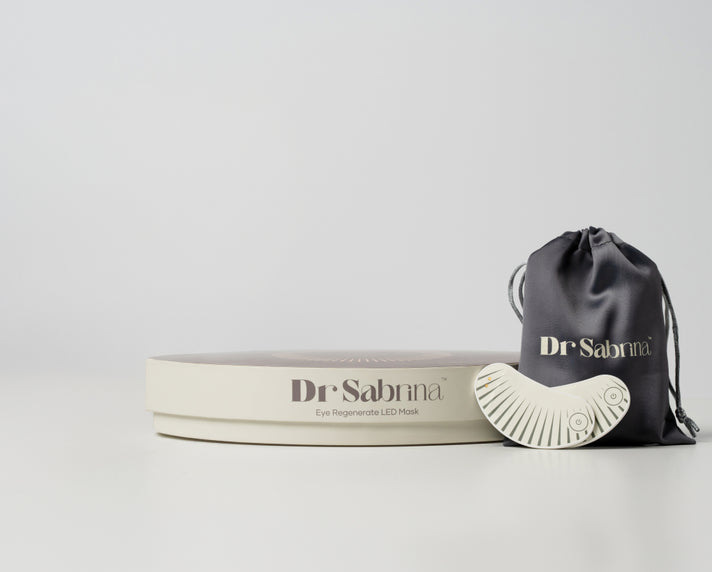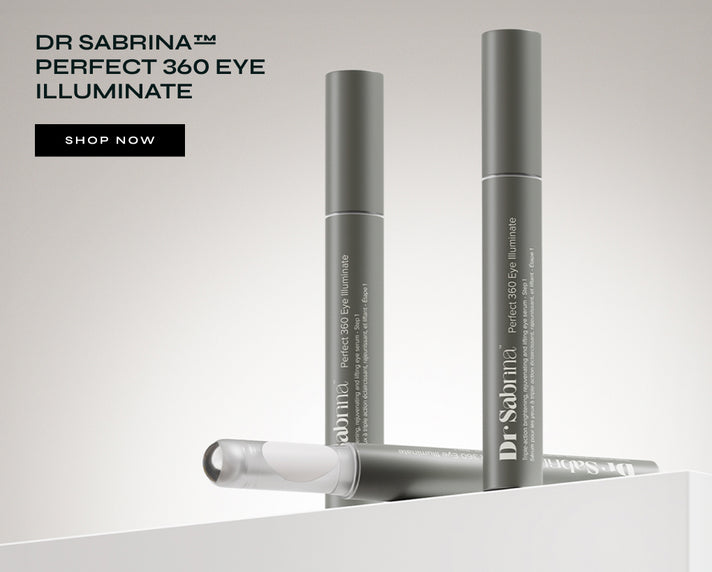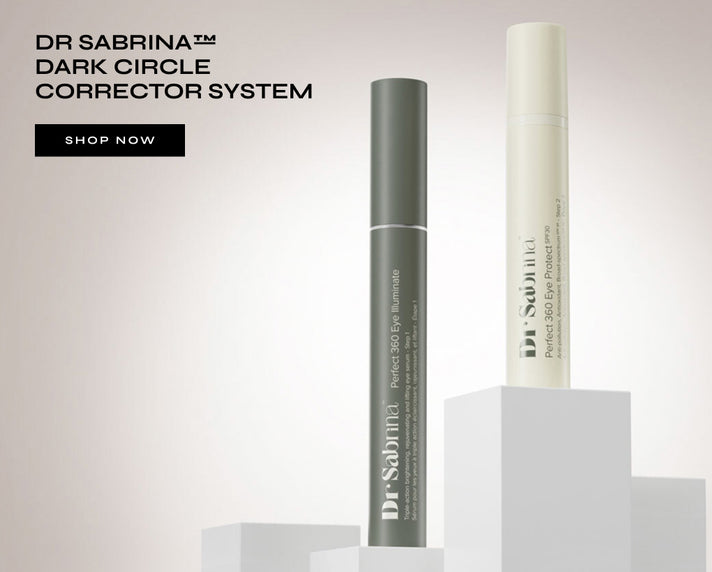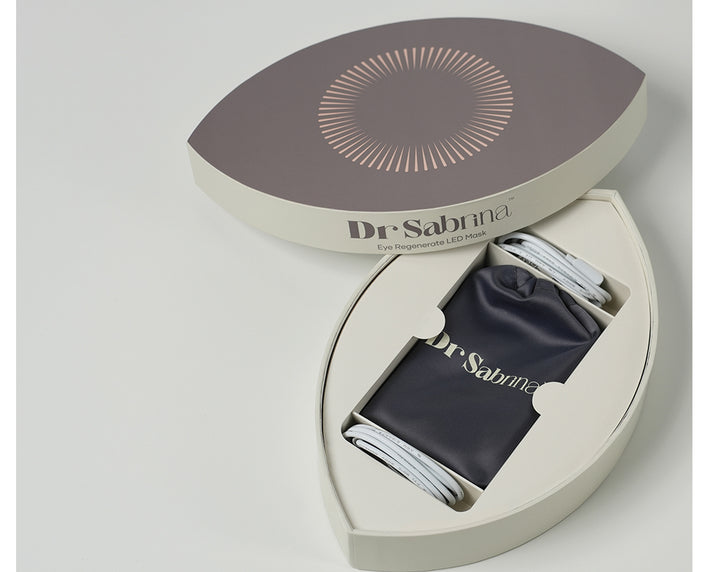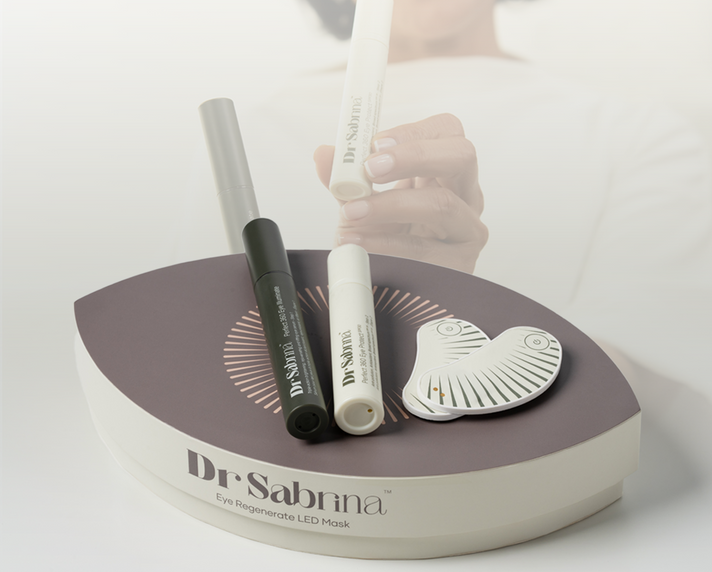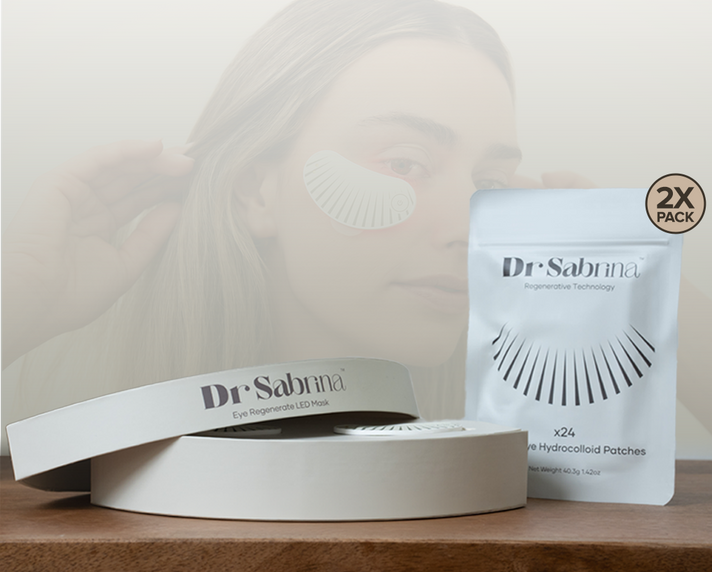Dark Circle
How To Relieve Itchy Eyes?
4 min.
Have you ever found yourself rubbing your eyes nonstop, wondering why your eyes are so itchy all of a sudden? Whether it hits you first thing in the morning or creeps in during allergy season, itchy eyes can be incredibly annoying—and sometimes even painful. You’re not alone if you’ve been Googling things like relieving itchy eyes or stopping itchy eyes at 2 AM while blinking through the blur.
The truth is, there isn’t one simple cause. From dust and pollen to screen fatigue and skincare products, the list of itchy eyes causes is long—and frustrating. The good news? Relief is possible, and it might be easier than you think.
In this guide, we’ll explore how to treat itchy eyes, uncover the hidden triggers behind that persistent itch, and share quick remedies to bring your eyes the comfort they deserve. Let’s break it down together—because you shouldn’t have to suffer every time allergy season rolls around or your screen time creeps up.
Causes of Itchy Eyes
When you know the causes of itchy eyes, it's much easier to find the right approach to treating them effectively.
1. Allergies (pollen, dust mites, pet dander):
Allergens are the most frequent culprits. When your immune system reacts to pollen, dust, or pet dander, it releases histamines that cause redness, itchiness, and watering.
2. Eye strain (screen fatigue):
Spending hours staring at digital screens can dry out your eyes and make them feel itchy or gritty a common issue known as digital eye strain.
3. Dry eyes:
When your tear glands don’t produce enough lubrication, your eyes can feel itchy, dry, or sandy, especially in air-conditioned rooms or windy environments.
4. Contact lens irritation:
Wearing contact lenses for too long or not cleaning them properly can irritate the surface of your eyes and cause persistent itching.
5. Conjunctivitis (pink eye):
This common infection can cause red, itchy, and swollen eyes, sometimes with a sticky discharge. It can be viral, bacterial, or allergic in nature.
Why Are My Eyes Itchy and Swollen?
If you wake up with puffy eyelids or red, watery eyes, you may have an itchy, swollen eyelid. This condition is often triggered by:
-
Rubbing your eyes excessively
-
Allergic reactions
-
Blocked oil glands
-
Blepharitis (eyelid inflammation)
A swollen eyelid makes it even more important to understand how to stop itchy eyes before the irritation worsens.
Common Allergens That Cause Eye Irritation
If you’re constantly wondering why your eyes are so itchy, allergens could be the hidden culprit.
These include:
-
Pollen: Often triggers symptoms in spring and summer
-
Pet dander: From cats, dogs, or other furry animals
-
Dust mites: Found in bedding and upholstery
-
Mould: Especially in damp indoor environments
Avoiding these allergens is a major step toward treating itchy eyes naturally.
How to Soothe Itchy Eyes from Allergies
If your itchy eyes are triggered by allergies, long-term management is essential. Here’s how to reduce symptoms and protect your eyes year-round:
1. Limit outdoor exposure: Stay indoors when pollen counts are high, usually in the morning and on windy days.
2. Close windows: Keep windows and doors shut to prevent allergens from entering your home.
3. Use air purifiers: HEPA filters can trap dust, pollen, and pet dander effectively.
4. Clean regularly: Wash bedding in hot water weekly and vacuum using HEPA filters to reduce dust mites.
5. Shower after going outdoors: This removes pollen from your hair and skin.
6. Avoid rubbing your eyes: Rubbing releases more histamines, worsening the itching.
These small changes can significantly reduce allergic flare-ups and help soothe itchy eyes from allergies naturally.
How To Relieve Itchy Eyes?
Let’s get to the heart of the matter: how to effectively relieve itchy eyes. Here are proven remedies to help you feel better fast.
- Cold compress
- Eye drops
- Keep the eye area clean
- Use a humidifier
- Avoid allergens
- Cucumber slices
- Rinse your eyes
Let's delve deeper into each remedy for itchy eyes to better understand their effectiveness:
1. Cold Compress
Applying a cold compress is one of the easiest ways to reduce itching and swelling. This helps reduce inflammation, soothes the itching, and can also alleviate bloodshot eyes. All you have to do is soak a clean cloth in cold water, wring it out, and apply it over your closed eyes. The cool sensation can reduce inflammation and provide immediate relief.
2. Eye Drops
Over-the-counter eye drops can help if your eyes are itchy due to dryness or allergies. Look for lubricating eye drops, often called artificial tears, to soothe your eyes. If allergies are the issue, antihistamine eye drops might be more effective.
3. Keep the Eye Area Clean
Wash your face and eyelids with mild soap to remove pollen, dust, and makeup residues. Keeping the eye area clean is vital for effectively treating itchy eyes.
4. Use a Humidifier
Dry air can make your eyes feel itchy, especially in air-conditioned or heated environments. Using a humidifier adds moisture to the air, helping to keep your eyes hydrated and less prone to irritation.
5. Avoid Allergens
If your itchy eyes are triggered by allergens like pollen, dust, or pet dander, try to avoid these as much as possible. Keep windows closed during high pollen seasons, use air filters, and wash your hands after touching pets to minimise exposure.
6. Cucumber Slices
Among remedies for itchy eyes cucumber slices are a natural way. They have cooling properties that can reduce inflammation. Place chilled cucumber slices over your eyes for about 10-15 minutes to calm the itch and reduce puffiness.
7. Rinse Your Eyes
If you suspect that something is in your eye, such as dust or pollen, rinse your eyes with clean water or a saline solution. This can help flush out irritants and soothe the itching.
How To Prevent Itchy Eyes?

To prevent itchy eyes, you can start by identifying potential triggers. Keeping a journal of things that might be causing your eye irritation can help pinpoint what to avoid. Once you know your triggers, you can take steps to prevent or at least reduce the frequency of itchy eyes.
To avoid eyestrain and prevent itchiness, there are several things you can do during the day:
- Take breaks during long drives or prolonged use of screens.
- Wear polarised sunglasses outdoors or while driving.
- Read in well-lit areas.
- Use artificial tears throughout the day.
- Ensure your computer screen is slightly below eye level and about a foot away from your face.
- Make sure you wear contacts or glasses as needed.
If allergies are the cause of your itchy eyes, try the following:
- To reduce mould in your home, clean regularly and use a dehumidifier.
- Keep windows closed at night and during high pollen seasons.
- Thoroughly remove eye makeup before bed.
- Clean up pet hair regularly and use dust-mite-resistant bedding.
- Wash your hands before touching your eyes, especially after handling pets or allergens.
Avoiding physical contact with anyone who has an eye infection, such as pink eye, and not sharing eye-related products will also help prevent certain eye diseases. Additionally, try to limit exposure to other irritants like dry air, wind, cigarette smoke, or strong chemicals. Eating a diet rich in vitamin A and omega-3 fatty acids can also support eye health.
When To See A Doctor?
Most cases of itchy eyes are typically short-lived and may resolve on their own. Consult your doctor if:
- Your symptoms show no signs of improvement.
- You have a thick discharge from your eyes.
- Your eyelids are stuck together.
- You cannot keep your eyes open.
- Your vision has changed or become blurry.
- There is something lodged in your eye.
- It is painful to look at bright lights.
- Your pupils (the black parts in the centre of your eye) are unequal in size.
- Your eyes are swollen.
- You are in discomfort.
Eye Drops vs. Home Remedies: What Works Best?
When choosing between eye drops and home solutions, here's what you should consider:
Eye Drops: Eye Drops are best for quick relief and targeted treatment. Use antihistamine drops for allergies and lubricating drops for dryness.
Home Remedies: These are great for mild symptoms or in combination with drops. Natural methods like compresses and humidifiers support ongoing comfort.
Combining both methods can be the ultimate solution for treating itchy eyes comprehensively.
Final Thoughts:Now You Know How to Relieve Itchy Eyes
Most cases of itchy eyes are mild and temporary often caused by allergies, dryness, or environmental irritants. By identifying the cause and applying the right remedy, you can find relief quickly and prevent future flare-ups.
If symptoms persist despite trying itchy eyes remedies at home and over-the-counter options, consult your doctor for personalised treatment. They may recommend the best eye drops for itchy dry eyes, antihistamines, or prescription medication to address the root cause.
Remember your eyes are delicate. Keep them clean, hydrated, and protected from allergens for lasting comfort and clarity.
Frequently Asked Questions (FAQs)
1. Can screen time cause itchy eyes?
Yes, prolonged screen use can dry out your eyes and lead to itchy eyes. Take frequent breaks and use artificial tears to relieve itchy eyes.
2. Is it safe to use makeup around itchy eyes?
Makeup can irritate sensitive eyes and even cause an itc, a swollen eyelid. Choose hypoallergenic products and stop using them if symptoms worsen.
3. Can eye makeup cause itchy eyes?
Yes. Certain cosmetics can trigger allergic reactions or clog tear ducts.
4. How long do itchy eyes last?
Usually a few hours to days. If symptoms persist beyond a week, consult a doctor.
5. Is it okay to rub itchy eyes?
No. Rubbing worsens irritation and increases the risk of infection.



